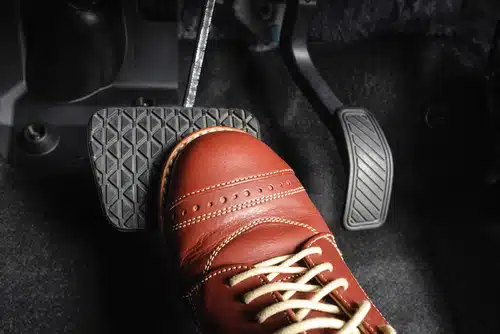Home » Blog » Car » Car Health & Safety » Should You Get a Car History Check When Buying a Used Car?
Categories
Tags
animal welfare
breed profile
buying a car
buying a pet
Car
car accessories
car care
car features
car insurance
Car safety
car sales
car service
cat
cat behaviour
cat body language
Cat Breeds
cat food
cat insurance
comprehensive car insurance
Dog
Dog Behaviour
dog body language
Dog Breeds
dog food
Dog Insurance
dog training
eco friendly cars
Kitten
New Car
pet accessories
pet activities
Pet Adoption
pet breeders
pet days of the year
pet fun stuff
Pet Health
pet insurance
pet parenting
Pet Safety
pet services
Puppy
rescue pets
road safety
road trip
safe driving
Recent Blog:
Facebook Posts
2 days ago
Growing old sometimes means we can’t take care of pets anymore. Find out some advice on what to do when this happens:![]()
![]() Senior Pet Parents – Contingency Plans for Your Pet – bit.ly/44bzwkS
... See MoreSee Less
Senior Pet Parents – Contingency Plans for Your Pet – bit.ly/44bzwkS
... See MoreSee Less
Senior Pet Parents' Contingency Plans for Pets
www.pd.com.au
Sometimes senior pet parents need more downtime. For older pet owners, this can be tricky to navigate if their dog or cat is full of beans and wants to4 days ago
Before you rev up the engine, let’s run through a checklist of things to do before starting your car. Not only do these steps ensure your safety (and that of others around you), but they also help in maintaining your vehicle's longevity.![]()
![]() Driving Tips: Your Checklist Before Starting Your Car -
... See MoreSee Less
Driving Tips: Your Checklist Before Starting Your Car -
... See MoreSee Less
Driving Tips: Your Checklist Before Starting Your Car
www.pd.com.au
Heading out for a drive? Hold up a second! Whether you're dashing off to work, running errands, or embarking on a road trip adventure, there are a few1 week ago
Are intestinal worms setting up camp in your dog’s gut without paying rent? Here’s how to spot the main culprits and get rid of them too:![]()
![]() Preventing, Identifying and Treating Intestinal Worms in Dogs - bit.ly/43YjCKu
... See MoreSee Less
Preventing, Identifying and Treating Intestinal Worms in Dogs - bit.ly/43YjCKu
... See MoreSee Less
Preventing, Identifying and Treating Intestinal Worms in Dogs
www.pd.com.au
Intestinal worms, such as roundworms in dogs are one of the least glamorous topics on the planet. These intestinal parasites that basically use our dogsA PPSR car history check is basically essential when buying a used car. Without it, you could end up purchasing a vehicle that’s previously been written off or, worse, stolen. You never know what history lies under that revamped paint job.
Thankfully a vehicle history check helps you uncover and avoid any skeletons in the car’s closet. After all, we could say you are what you drive. Which is why you’d want your car to be as good quality on the inside as it is on the out – past, present and future.
In this article, PD Insurance looks at the what, how and why of getting this check done. Please drive this way.
In this article

What is a PPSR car history check?
Buying a used car is an exciting venture, but it’s crucial to take a cautious approach to avoid potential pitfalls. One essential step is performing a comprehensive PPSR car history check. We’ll get to what PPSR means in a moment, but first…
Your car history check is a check that uses a car’s vehicle identity number (VIN) to check all records and transactions it’s involved in. Your VIN contains this information for your car much as your ID does for you.
So where is this information stored and where can you find it?
What does PPSR stand for?
You’ve likely noticed we mentioned ‘comprehensive’ as well as ‘PPSR’. Naturally these two concepts go together because PPSR stands for Personal Property Securities Register. This is where all the information linked to a vehicle’s VIN number information is stored.
The PPSR is an Australian Government register that’s home to information on various personal types of properties including real estate and vehicles. It’s designed to help you make safe choices around the purchase of these types of assets being sold.

What are the benefits of doing a car history check?
A PPSR car history check using the online register helps you avoid buying a car that’s stolen, currently has money owed on it, has been written off and more. It essentially helps you make secure choices around the investment of personal property.
After all, people often say “seeing is believing” but you can’t always see the damage that’s been done, or the finance that’s owing on a used car.
Let’s delve deeper into four of the benefits of getting a car history check:
1. Uncover owed finance
Before sealing the deal, a car history check can reveal if the vehicle is secured against an outstanding loan. If the previous owner defaults on payments, the lender may repossess the car. This would obviously leave you in a an entirely undesirable and precarious situation.
By conducting a check, you can help ensure a smooth transfer of ownership without unexpected financial burdens down the road.

2. Guard against stolen vehicles
While buyers may not face charges for unknowingly purchasing a stolen car, the repercussions could still be entirely unsavoury.
A car history check can help determine if the vehicle has been reported as stolen. If so, there’s a risk of repossession and the car may be returned to its rightful owner or their insurance or finance company.
Either way, when you’re buying a used car you don’t want any skeletons in the trunk. Getting behind the wheel should be a joyful experience, not one filled with speed bumps. Read how to beat buyer’s regret with this car buying checklist.
3. Assess the write-off status
Some cars labelled as repairable write-offs may undergo subpar repairs, posing risks to your safety. Car history checks provide insight into whether a vehicle has been written off and subsequently re-registered for resale.
Knowing the repair history ensures you make an informed decision about the car’s condition and potential risks. Speaking of which, get some insights on the replacement value of a car after it’s written off. Also check out our checklist for used cars.

4. Stay informed on safety recalls
Safety should be a top priority and car history checks can help you stay informed about any outstanding car safety recalls. The last thing you’re after is spending time test driving a car, making the payment then learning your car is under recall.
Not only would that be a potential financial blow but it could pose a serious risk to your and others’ lives. Recalls to cars tend to happen because there’s a manufacture aspect that doesn’t properly meet the safety needs of drivers and passengers. Some PPSR car history checks include ANCAP car safety ratings.
How to check car history
If you’re looking to do a car history check, just write ‘PPSR car history’ into your search bar and several options will come up giving you a variety of providers to choose from. Nowadays the whole process is super simple because you can do it online.
All you need is the vehicle’s VIN number – as you’ll see, this is different to the registration plates, which could be fake – and your personal contact details. Generally, because the whole process is digital, you input the details and get a car history check report within minutes. Viola!

Is a car history check free in Australia?
There are several services that offer a used car history check. Some are free and some are paid:
Free car history check
The free car history checks give you some essential information about a used car. For example, when the car’s registration expires or whether it’s been suspended or even cancelled. However, some free car history checks may provide more info.
In most cases you’ll likely want to invest a little to get a more comprehensive (think PPSR) car history check report. Investing a small amount in a thorough car history check can save you from significant financial and safety headaches down the road.
By uncovering potential issues related to outstanding loans, theft reports, write-off status, and safety recalls, you can confidently navigate the Australian car market and enjoy a smooth and worry-free driving experience.

Paid car history check
Those you need to pay for tend to be in the region of $25 to $35 or so. The paid version is essentially the PPSR car history check, which gets you a PPSR Certificate. This comprehensive certificate tells you the current finance status on the vehicle and whether it’s been damaged or written off. It also tells you what the damage was caused by such as hail, fire, accidents, or floods.
Moreover, the PPSR Certificate verifies the odometer reading, ensuring alignment with previous reports and identifying potential tampering. Paid reports also help alert you to whether the car has a history of being reported as written off or stolen.
Another benefit is that the certificate offers insights into previous sale listings. Going beyond basic information, the PPSR Certificate includes details about vehicle safety and emission ratings. This is vital for assessing the overall performance of a used car.
Finally, it estimates the car’s current market value, giving you knowledge to empower your decision-making process.
Check yourself with award winning car insurance
Whether you’re buying a new or used car, consider investing a small amount in a safety net: vehicle insurance. Car insurance helps protect your car and your driving lifestyle by helping cover the costs of repairs and replacement.
This could be because your car has been damaged, written off, stolen or been struck with other unforeseen incidents. Comprehensive cover can also help protect you financially if you damage someone else’s property in a driving incident. It only takes a few moments to start your quote – just click below and get started.
Share On:




